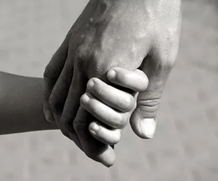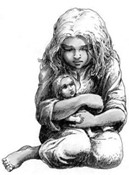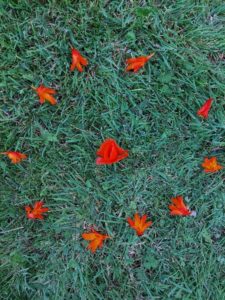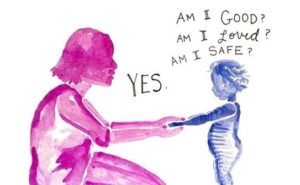You are not just your adult self, you are much more than that. You are the one that liked or needed to be hugged and told everything would be okay when you were upset or had a “boo boo.” You are the one that played silly games alone or with others, made fun and toys out of nature, built sandcastles on the beach, or spoke to imaginary friends. You are the one that cried at what we would now perceive, as adults, “the little things,” although they were hugely important things to you then. You are the one that wanted that chocolate bar, or toy you spotted and argued your point of need with your caregiver.
For some these are vague or distant memories now. For others, some of these are childhood experiences that cannot be retrieved right now at all, or perhaps they were never a component of your childhood experience. In any case, there is a part of you, with you that has never left, and this part of you can be referred to as “your inner child.”

The Child Ego State
The child ego state is one which we can slip in and out of at any time throughout our day, sometimes intentionally, and other times triggered by what we are experiencing around us such a certain people, places, or things. The child ego state stems from the thoughts, feelings, and behaviours that we experienced as a child. For example, if the manager asks us to speak with him/her in the office, we may suddenly get a churning in our stomach and question if we have done something wrong.
Exploring the reason for this automatic thinking, we might recall the time a teacher asked us to stay back after class to tell us off. Similarly, we might walk into a house and smell a nice smell and remember our Grandmother’s house when we were little, resulting in the return of all the same warm feelings we had at her house as a 7-year-old.
There are three types of inner child we can embody when we move into the child ego state:
The Natural Child – As the natural child we are mostly un-self-aware and our verbal outputs are typified by the non-speech noises we make (yippee, yaaay, whoo-hoo, etc). In the natural child state, we are playful, open, as well as vulnerable.
The Little Professor – In this type of child ego state we are curious and love to explore, test, and try out new things. The Natural Child and Little Professor together, make up what we call ‘The Free Child’.
The Adaptive Child – As the adaptive child we react to the world around us by changing ourselves to fit in and gain approval and so being good, or by rebelling against the forces in opposition to us and so being bold or naughty.
The child ego state is ongoingly being updated. In this sense, we may have a friend who gives us the permission we needed (but never got) in our childhood, to be human and self-forgiving for wrongdoings. We may then recall our encounters with that friend “What would he/she say to me right now?” to counteract our ways of thinking in childhood and give ourselves new permissions. So rather than being upset with ourselves for what we did not execute well, we begin to automatically start to consider how we are always learning, and have compassion for ourselves in the understanding that it is okay to make mistakes in life.

Although I am an integrative therapist (the use of various theoretical approaches), I have a special confidence in the psychodynamic approach (A theory suggesting that our behaviour and feelings as adults are rooted in our childhood experiences) to issues in therapy sessions. This has been influenced by having witnessed (and personally experienced in the position of client, myself) the impact of the psychodynamic approach to healing us as adults. When we allow ourselves the opportunity to routinely be a child again, or work with the inner child in therapy, it can have a profound impact on the adult self. I personally believe this type of work to be one of the most powerful approaches we can take to achieve inner freedom and positive mental, emotional, physical as well as spiritual health.

Has your inner child been out and about lately?
As a form of self-love and tending to my own inner child, I allow my fun, spontaneous and playful side out to try new things and have new experiences. I open my imagination and express my creativity through making mandalas with flowers that I’ve picked from nature in the grass, or painting. I buy myself that blue bubble-gum ice-cream that my inner child loves.
I listen to her needs guided by my (non-typical adult self) wants in a moment and fulfil these by sometimes doing things such as dancing, having fun in sea water, or freely running through a forest and exploring new parts of it as I tend to my inner child’s curiosity. I have watched old cartoons on YouTube, picked winkles just because I did so as a child with my Father, and retrieved old toys I had in my childhood to enjoy them once again. I allow myself to be what might be considered “silly” for the period that I am in my child ego state.

Sometimes there were things we needed as children and these needs were not met. These may have been any one or several of our emotional, mental, physical, or spiritual needs. It was our nature to be needy in many ways as children and although we have grown greatly since then and are required to undertake a more serious approach to life, it is only healthy and healing to allow our inner child out now. When was the last time you let him or her do this? What was your favourite past time? Food? Toy?
Perhaps you haven’t expressed or nurtured your inner child in a long time. Maybe it’s time to repurchase that toy you loved as a child and play with it, watch your favourite childhood cartoons once again, or play on the swings. As adults we are empowered in the sense that we can be our own Mother, Father or Caregiver to the child that resides within us, providing that which we hoped for or deserved in our moments of need. Perhaps it’s time to allow your inner child to cry the tears he/she never did, tell him/her that he/she is safe and that you “have him/her,” be scared, be angry, hurt, confused, and everything in between.
It is in these moments of healing that, as an adult, you can be the nurturer, the Mother or Father, and the best version of the carer that you needed at those times to yourself… Loving and comforting yourself as you would an innocent child and breathing life back into the part of you that never ever left.

The article is written by Darina, Trainee Counsellor at The DMC Clinic. If you would like to discuss how any of the topics mentioned above are impacting your mental health, please contact The DMC Clinic to arrange an appointment.









